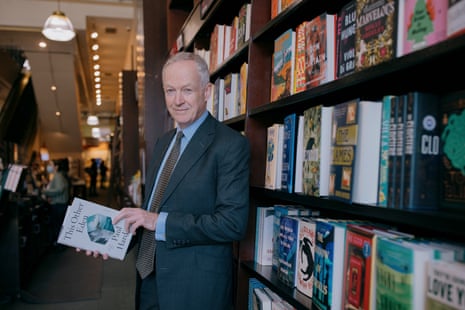
Lauren Aratani in New YorkSat 15 Apr 2023 00.00 EDT

James Daunt, CEO of Barnes & Noble, on the first floor of the massive bookstore, the second largest in the country, at Union Square in Manhattan, New York. Photograph: José A Alvarado Jr./The Guardian
‘Amazon doesn’t care about books’: how Barnes & Noble bounced back
Barnes & Noble is the US’s largest remaining book chain but, under James Daunt, each of the 600 stores is meant to run like an independent bookstore

Lauren Aratani in New YorkSat 15 Apr 2023 00.00 EDTLast modified on Sat 15 Apr 2023 12.11 EDT
Walking into the big Barnes & Noble store in New York’s Union Square a few years ago, a book lover might have been surprised by what they found: an absence of books. Barnes & Noble shops were once full of other things: Lego sets, calendars, Funko Pop figurines, puzzles, chocolates – all with their own display shelves. The books were mainly upstairs.
Not any more. Now, “you’re not seeing much beyond books”, says James Daunt, Barnes & Noble’s British chief executive, standing on the first floor of the giant bookstore, the second-largest in the US. “I mean, there are other things, but it’s unequivocally book-driven.”
On a spring afternoon, the books seem to be successfully drawing a stream of browsers to the four-storey shop. People popping in from a run flip through mysteries and romance paperbacks near the front, while backpack-wearing teens giggle excitedly in the young adult section on the second floor. They pay little attention to the soft-spoken man walking through the store in a grey suit. “I’m not wearing my bookseller threads,” Daunt says with a laugh. “This is not what a bookseller looks like.”
Barnes & Noble is the US’s largest remaining book chain but, under Daunt, each of the chain’s approximately 600 stores is meant to operate like an independent bookstore – unique and highly curated to fit a local community. The aim is to offer something completely different from Amazon, where about half of all print books sold in the US are bought.
“Amazon doesn’t care about books … a book is just another thing in a warehouse,” Daunt says. “Whereas bookstores are places of discovery. They’re just really nice spaces.”



